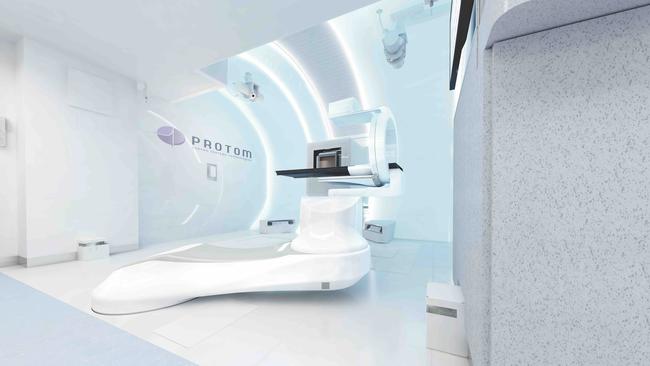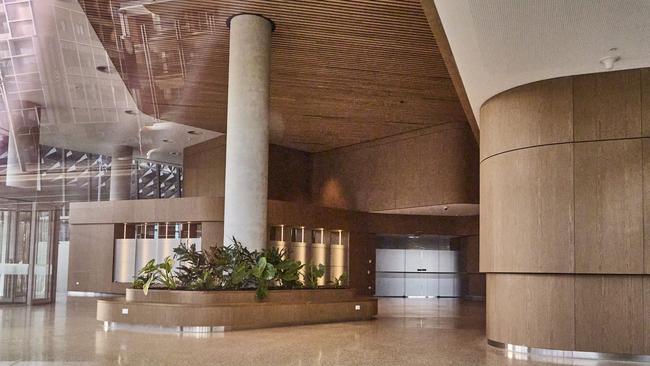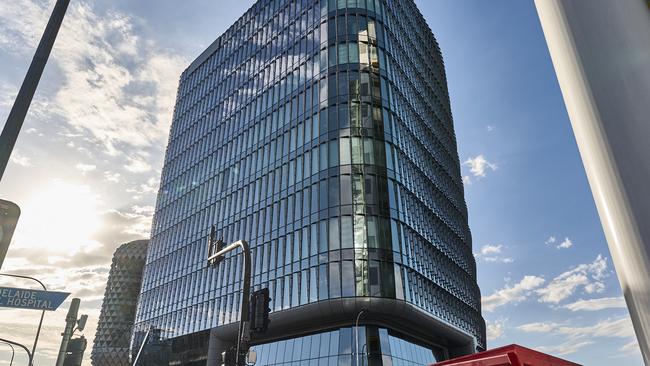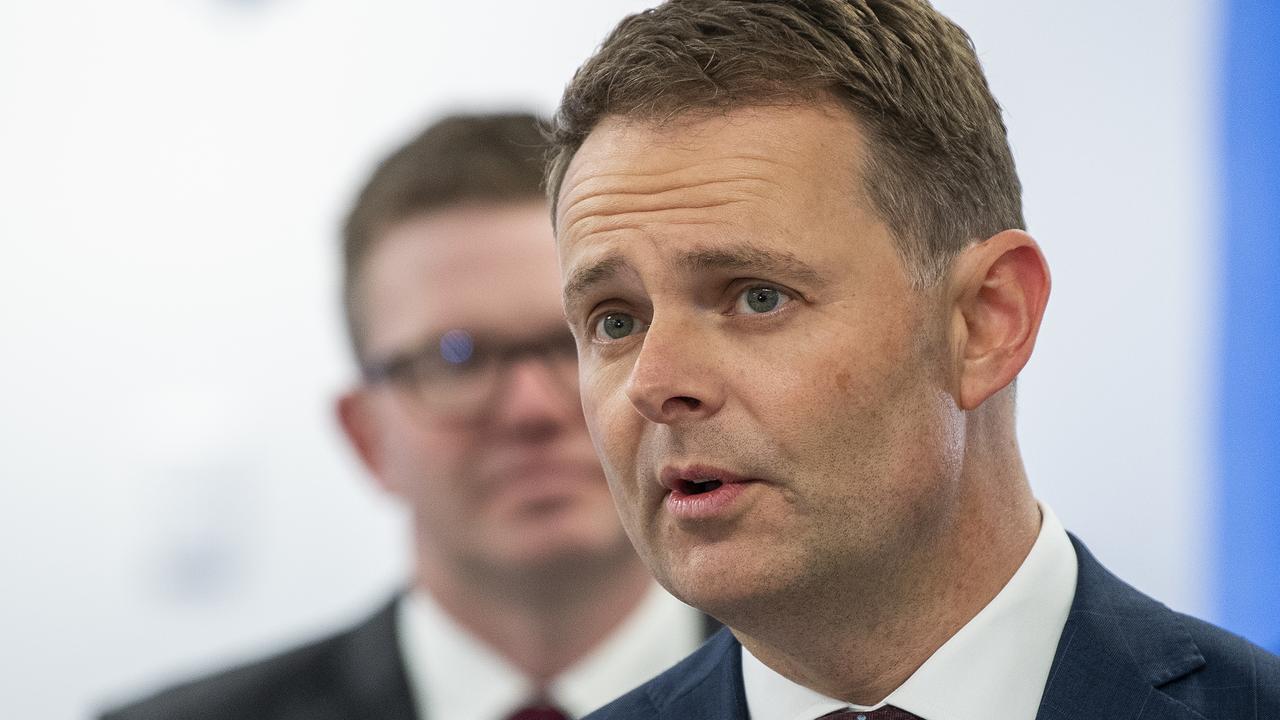KPMG auditors warned South Australian Health and Medical Research Institute of grave financial risks with ProTom International over cancer bunker
South Australian taxpayers funded an experimental Adelaide cancer centre despite stark auditor warnings, according to a never-before-seen report.
SA News
Don't miss out on the headlines from SA News. Followed categories will be added to My News.
South Australian taxpayers funded an experimental Adelaide cancer centre despite stark auditor warnings an embattled Chinese-backed American company posed a serious risk of failure.
Confidential leaked documents show red flags were disregarded over plans for a South Australian Health and Medical Research Institute proton beam therapy unit seven years ago.
Despite KPMG auditors’ warning of ProTom International’s financial “delinquency”, at least $110m worth of federal and state funds was awarded to the Boston-based firm.
The Southern Hemisphere’s first such unit, planned inside a four-storey concrete “bunker” under the $500m Australian Bragg Centre, is at grave risk amid an international dispute.
Boston-based PTI, which filed for voluntary “Chapter 11” bankruptcy in 2015 with $24m in debts, wants a $US50m ($75.7m) SA bailout, and an extra year, to install its Radiance 330 machine in the CBD’s northwest $3.6 billion BioMed city precinct.
Acting on state Treasury advice, SAHMRI is refusing.

A KPMG risk analysis for SAHMRI in August 2017, warned about signing with PTI, which had posted a $42.9m loss over the previous three financial years.
The 57-page “confidential” report warned of PTI’s “lack of demonstrated” financial capacity and commercial product success.
“Each of these factors is significant on its own, and although interrelated, combined the risk is compounded,” the report concluded.
Auditors outlined financial risks such as having little or no asset backing, seeking bankruptcy protection, ongoing financial losses, no demonstrated self-financing strategy, reliance on shareholder funds and previous “abject” US project failures in New Jersey and Michigan.
Auditors warned of “unanswered concerns” as they urged further due diligence, and talks with other suppliers, to avoid serious consequences such as contract failures.
PTI, which blames Covid-19 and the Ukraine war for its financial woes, operates its cutting-edge technology only at Massachusetts General Hospital, in Boston, which KPMG warned would lose $1.3m.
Complex 2017 financial statements showed almost $24m in net assets and $63.6m from Chinese investors – with promises of $34m extra.
An average monthly “cash burn” was $1.7m but “never achieved successful customer acceptance” on its therapy system, which used seven global technology suppliers in Russia, Finland, France and US.


Warning there was no single protection, auditors recommended strategies including “not accepting anything at face value”.
“None of these strategies will alter the fact that ProTom is not a party of financial substance, with a high risk of delinquency,” the report warned.
“Arguably, the greater risk is associated with the lack of alternative service providers in the event ProTom is unable to complete the contract.”
The KPMG report notes state and Commonwealth governments – now at loggerheads – wanted a “game-changer” success from the high-profile public/private partnership with Commercial & General construction firm and now Dexus property fund.
“If things go wrong, SAHMRI’s reputation as a centre for excellence may be tainted with potential ramifications for the attraction of future public and private funding,” auditors noted.

A SAHMRI review, and other failed bidders, made similar warnings.
The state’s spending watchdog, Auditor-General Andrew Blaskett, is investigating the mounting taxpayer crisis, about which MPs will question him on Monday.
A SAHMRI spokesman said: “The decision to select the provider went through a robust procurement process involving SAHMRI and its government and commercial partners.”
A PTI spokesman declined to comment due to a legally-binding nondisclosure agreement.
Opposition spokesman Sam Telfer said it had “little confidence” in the government’s ability to deliver.
Treasurer Stephen Mullighan said authorities would continue to work with the Australian Bragg Centre for Proton Therapy and Research to “assist it to deliver this project”.
“(We) hope that any delays can be addressed by the end of the year,” he said.






